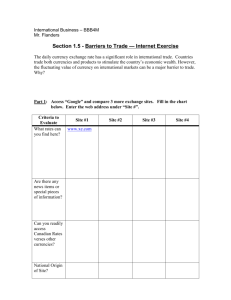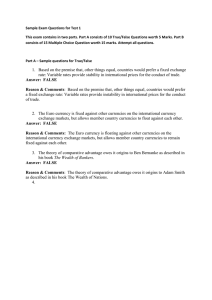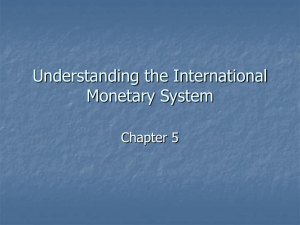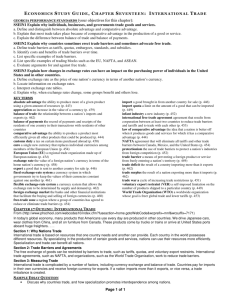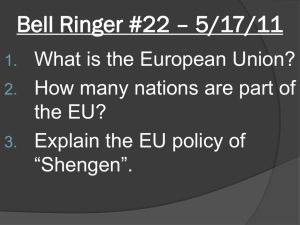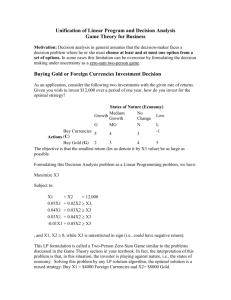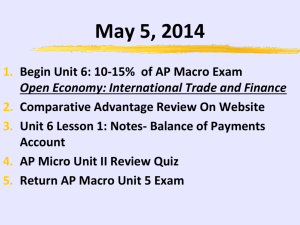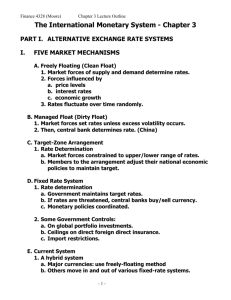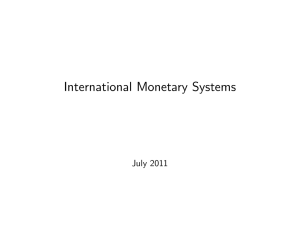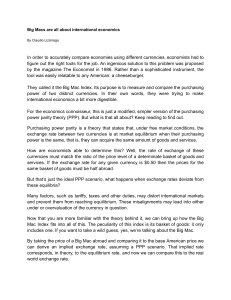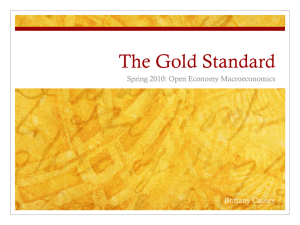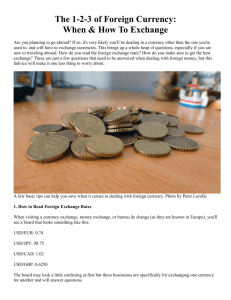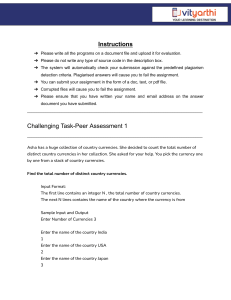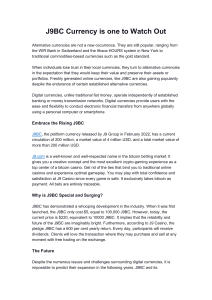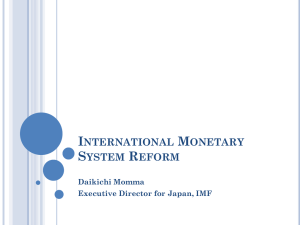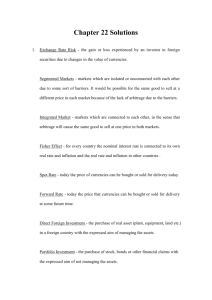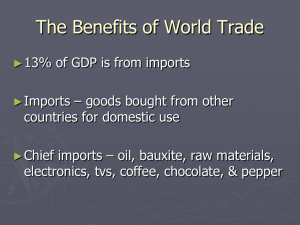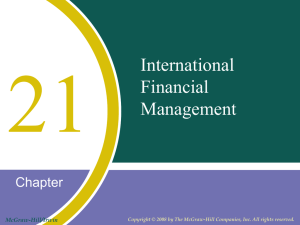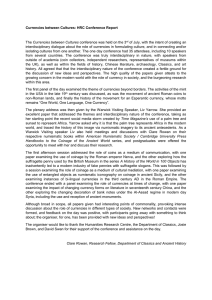Exit Exam Terminology
advertisement
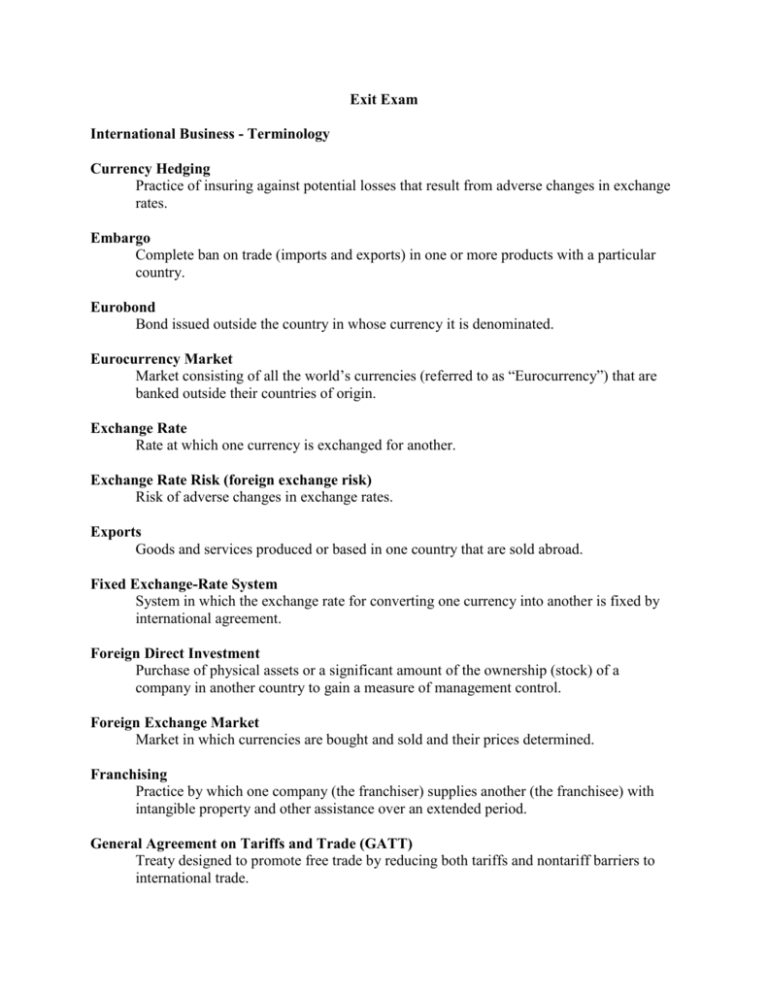
Exit Exam International Business - Terminology Currency Hedging Practice of insuring against potential losses that result from adverse changes in exchange rates. Embargo Complete ban on trade (imports and exports) in one or more products with a particular country. Eurobond Bond issued outside the country in whose currency it is denominated. Eurocurrency Market Market consisting of all the world’s currencies (referred to as “Eurocurrency”) that are banked outside their countries of origin. Exchange Rate Rate at which one currency is exchanged for another. Exchange Rate Risk (foreign exchange risk) Risk of adverse changes in exchange rates. Exports Goods and services produced or based in one country that are sold abroad. Fixed Exchange-Rate System System in which the exchange rate for converting one currency into another is fixed by international agreement. Foreign Direct Investment Purchase of physical assets or a significant amount of the ownership (stock) of a company in another country to gain a measure of management control. Foreign Exchange Market Market in which currencies are bought and sold and their prices determined. Franchising Practice by which one company (the franchiser) supplies another (the franchisee) with intangible property and other assistance over an extended period. General Agreement on Tariffs and Trade (GATT) Treaty designed to promote free trade by reducing both tariffs and nontariff barriers to international trade. Gold Standard International monetary system in which nations linked the value of their paper currencies to specific values of gold. Gross Domestic Product (GDP) Value of all goods and services produced by a country’s domestic economy over a oneyear period. Gross National Product (GNP) Value of all goods and services produced by a country during a one-year period, including income generated by both domestic and international activities. Imports Goods and services brought into a country that are acquired from organizations located abroad. International Bond Market Market consisting of all bonds sold by issuing companies, governments, or other organizations outside their own countries. International Monetary System Collection of agreements and institutions that govern exchange rates. Joint Venture Separate company that is created and jointly owned by two or more independent entities to achieve a common business objective. Licensing Practice by which one company owning intangible property (the licensor) grants another firm (the licensee) the right to use that property for a specified period of time. Managed Float System Exchange-rate system in which currencies float against one another, with governments intervening to stabilize their currencies at particular target exchange rates. Multinational Company Business that has direct investment abroad in multiple countries. Quota Restriction on the amount (measured in units or weight) of a good that can enter or leave a country during a certain period of time. Tariff Government tax levied on a product as it enters or leaves a country. Today’s Exchange Rate Arrangements Today’s international monetary system remains in large part a managed float system, whereby most nations’ currencies float against one another and governments engage in limited intervention to realign exchange rates. Turnkey (build-operate-transfer) Project Practice by which one company designs, constructs, and tests a production facility for a client firm.
